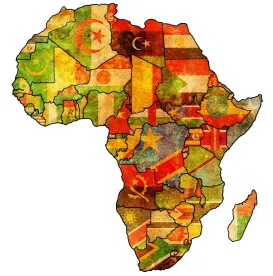A profile of recent enforcement actions in the North African states of Morocco, Algeria, Tunisia, Libya, Sudan and Egypt. The report illustrates the need for ongoing caution from investors in the energy sector in the region.
Morocco
Morocco scored 39 on the Transparency International Corruption Perceptions Index for 2014 (hereafter the “International Corruption Index”), with 0 being “highly corrupt” and 100 being “very clean.” US regulators use the International Corruption Index as an indicator for directing investigation resources and for justifying countries that should receive additional scrutiny by corporate compliance departments.
In its first FCPA enforcement action of the year, on January 22, 2015, the SEC reached a deferred prosecution agreement with The PBSJ Corporation. An officer for the Florida-based engineering and construction firm had offered to funnel funds to a company owned and controlled by a foreign official in order to secure two multi-million dollar Qatari government contracts for PBSJ in 2009. The foreign official subsequently provided the officer and PBSJ’s international subsidiary with access to confidential sealed-bid and pricing information that enabled the PBSJ subsidiary to tender winning bids for a hotel resort development project in Morocco and a light rail transit project in Qatar. The officer also offered employment to a second foreign official in return for assistance as the bribery scheme began to unravel and PBSJ lost the hotel resort contract. Once PBSJ uncovered the misconduct, it self-reported the incidents to the SEC, and agreed to pay $3.4 million in financial remedies.
Political corruption and instability: Since ascending to the throne on July 23, 1999, King Mohammad VI has enacted a range of social, democratic, and economic reforms that have left Morocco more liberalized and stable than many of its neighbors. However, the royals retain control in a vast number of businesses in the area, and widespread corruption undermines investor sentiment and increases business costs.
Algeria- 36 on the International Corruption Index.
As a result of enforcement actions brought by the DOJ and SEC, on November 26, 2013, subsidiaries of Weatherford International, a Swiss oil services company, agreed to pay approximately $153 million to resolve various FCPA allegations, including that Weatherford provided improper travel and entertainment to officials of a state-owned company in Algeria with no legitimate business purpose. For example, Weatherford paid for a 2006 FIFA World Cup trip by two of the officials, the July 2006 honeymoon of an official’s daughter, and an October 2005 religious trip to Saudi Arabia by an official and his family that was improperly recorded as a donation in Weatherford’s books and records.
On April 17, 2013, SNC-Lavalin Inc. negotiated a settlement with the World Bank under which the Canadian engineering firm and its 100 subsidiaries were banned from bidding on any of the Bank’s development projects for 10 years. SNC-Lavalin had been accused of corruption in Bangladesh, Cambodia, Libya, and Algeria, including paying millions of dollars in bribes to middlemen to obtain work for the company.
Political corruption and instability: President Abdelaziz Bouteflika took office in 1999 and has been reelected three times since, although his age and ill health suggest his time in power may soon end. Barriers to economic growth and economic freedom include significant bureaucratic regulations, a weak and corrupt judiciary, and rampant corruption in the business and public sectors, especially the state-dominated energy sector.
Tunisia - 40 on the International Corruption Index.
Political corruption and instability: Former president Ben Ali enacted an extensive web of regulations that favored individuals and companies with political connections and excluded and/or penalized those without. Although Ben Ali was ousted during the revolution in 2011, a 2014 study by the World Bank found that the crony-capitalism regulatory structure he enacted remains largely intact, perpetuating social exclusion and corruption to the detriment of entities without political connections. For example, the study found a significant fear amongst Tunisian entrepreneurs that success would attract unwanted and expropriatory attention from government officials.
Libya - 18 on the International Corruption Index.
In 2014, the DOJ joined the SEC in investigating whether certain financial groups including Goldman Sachs violated the FCPA by using “fixers” in the Middle East, London, and other countries to funnel bribery payments to Libyan officials in exchange for business.
See World Bank settlement with SNC-Lavalin Inc. under Algeria section, supra.
Political corruption and instability: Although Muammar Gaddafi, Libya’s President for 42 years, was captured and killed during the 2011 Libyan civil war, his regime of corruption, cronyism, and money laundering left the country with weak institutions and prone to violence. Libyans elected new governments in 2012 and 2014, only to devolve into a second civil war. Currently, the country is led by two separate governments, with control of Benghazi still in dispute.
Sudan - 11 on the International Corruption Index.
On June 30, 2014, BNP Paribas agreed to pay $8.9 billion in fines to settle criminal allegations by the DOJ that the French bank violated US money laundering laws when it modified payments to evade detection and assist clients in doing business with sanctioned countries, including Sudan, between 2004 and 2012.
On March 12, 2015, Commerzbank AG agreed to pay OFAC, the DOJ, and regulatory agencies $258.66 million to settle allegations that Commerzbank had processed transactions involving sanctioned companies through US financial institutions, and that Commerzbank had disguised those payments by removing, omitting, or obscuring the names of the sanctioned entities involved. For example, Commerzbank violated the Sudanese Sanctions Regulations by processing 375 wire transfers involving Sudan between September 2005 and December 2007.
On March 25, 2015, PayPal, Inc. agreed to pay OFAC $7.658 million to settle allegations that PayPal had processed payments in violation of various sanctions programs. For example, PayPal violated the Sudanese Sanctions Regulations by failing to adequately screen—and thus block—33 transactions involving US sanctions targets between May 2010 and August 2013.
Political corruption and instability: the administration of President Omar Hassan al-Bashir, who came to power in a 1989 military coup and still rules the country, has been accused of corruption, embezzlement, bribery, cronyism, and genocide in Darfur. That, combined with continued conflict with rebels and South Sudan, makes Sudan one of the world’s more challenging business environments.
Egypt - 37 on the International Corruption Index
As a result of an FCPA enforcement action by the DOJ against Alstom S.A., on December 22, 2014, the French power and transportation company pleaded guilty and agreed to pay a $772.29 million fine to resolve charges of a widespread scheme involving tens of millions of dollars in bribes in countries around the world, including Egypt.
Political corruption and instability: In 2011, Hosni Mubarak resigned his 30-year presidency amidst allegations of corruption and abuse of power that culminated in revolution. In 2012, Egyptians elected Mohamed Morsi to the presidency. Dissatisfaction with Morsi’s authoritarian rule led to a 2013 military coup d’état and the 2014 election of Abdel Fattah El-Sisi. Although the Sisi government has been accused of using brutal and repressive tactics against its detractors, it has recently and vocally encouraged new foreign investment in the country.



 />i
/>i
